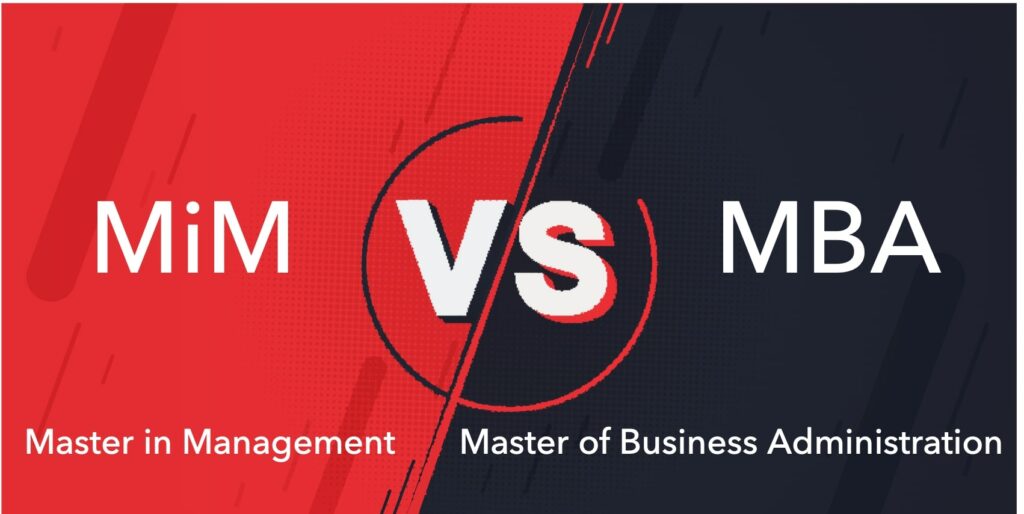The Master’s in Business Administration (MBA) & the Master’s in Management (MiM) are both popular business management degree programmes, but which one is right for you? One of the key differences between the MBA & MiM is the work experience requirement. The Target Audience – Seasoned professionals vs Recent Graduates
MBA students are expected to be seasoned business professionals with between three to five years of relevant work experience and it’s unlikely that a graduate without this work experience will be accepted on to most programmes.
For MiM applicants however, work experience isn’t usually a deciding factor, although applicants are asked to demonstrate a commitment to the programme. This makes it perfect for recent graduates looking to move into graduate management positions. This is due to the nature & goal of the degree, so work experience is not a major deciding factor in the admission criteria (if one accumulates too much work experience, they are urged to consider an MBA. )
Aside from work experience requirements, there are plenty of differences between the MiM and the MBA, including what you will study; teaching methods; the cost of the programme, and the potential career paths.
What will you study?
MBA and MiM degrees are both postgraduate programmes based around a broad management curriculum, often with opportunities to specialise. However, there are differences in what you study and the way you study it:
MBA programmes are often oriented towards the practical applications of key management concepts drawing on participants’ experiences of working in industry. Students are encouraged to work hands-on, using real-world experience to understand and apply these concepts. The MBA will help them build the problem-solving skills needed to find innovative solutions for diverse business issues. MBA students also get the opportunity to personalise their learning experience to equip them with the skills they need, for the career they want. Students will undertake a range of modules – like leadership and management, responsible leadership, strategic planning, family businesses etc.
The MiM provides a detailed introduction to core management concepts, an opportunity to specialise in a particular discipline ( international business, finance, marketing, global supply chain management, business analytics etc ) and usually offers an opportunity for students to put their learning into practice in a client-facing project. Many programmes also offer module in professional practice / career and personal development modules.
How do the teaching methods differ?
The teaching methods for both the MBA and the MiM will depend on the specific programme you decide to study and the university you attend. However, in general, the MBA’s teaching should draw more on enabling students to relate their own experiences to the subjects being studied, whereas the MiM engages students to work collaboratively on cases, games, role-play and other business-related challenges.
A recent introduction has been the hybrid class model for MiM – wherein students receive teaching for a specific period (two-three weeks) and then immediately get into assignments / practical work to cement their learning, before heading back to the classroom.
An MBA programme is usually structured to encourage constructive learning, self-directed study, critical thinking, and teamwork. Students will spend much of their time in small group workshops and tutorials discussing and analysing their own experiences of business practices and behaviours.
Is there a difference in the cost of the programme?
In general, an MBA costs more than a Master’s in Management. However, the cost will vary depending on the location and the university.
What are the likely career paths?
The MiM is aimed at young professionals who are looking to move into their first position.
Contrastingly, the MBA is designed for professionals who have already progressed beyond their entry level jobs and are looking to accelerate their leadership development, shift careers into different industries or functional specialisms, advance their business knowledge or start their own business.
If you’re thinking about applying to the best universities in the world, we’ll be happy to partner you on this journey. Connect with us today !
